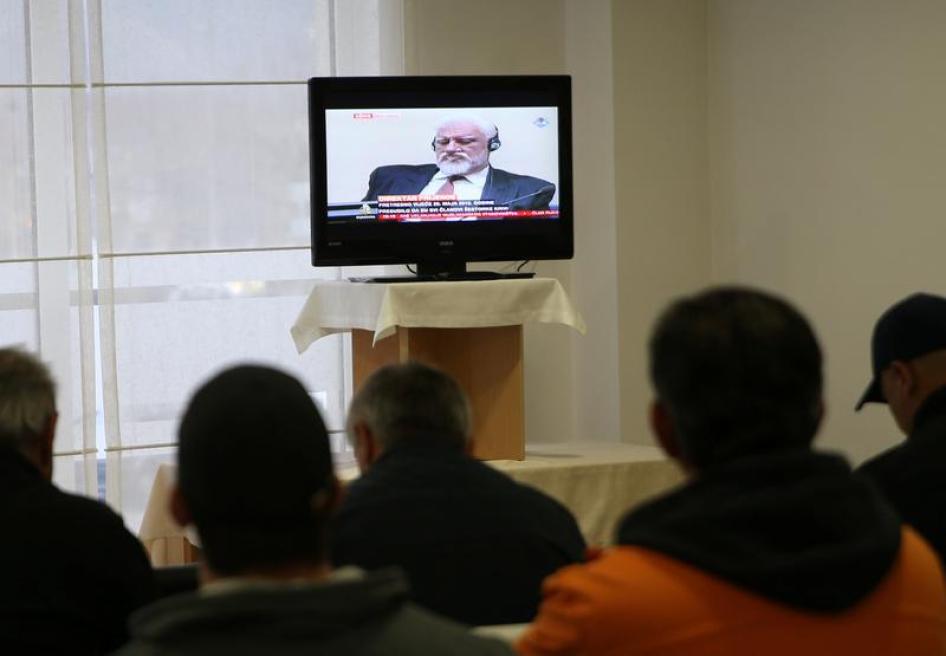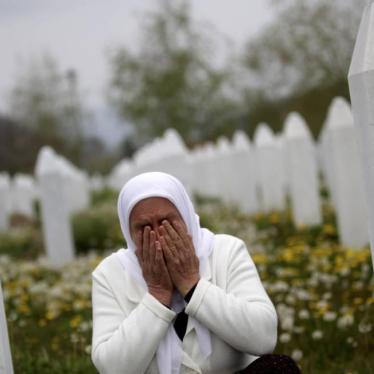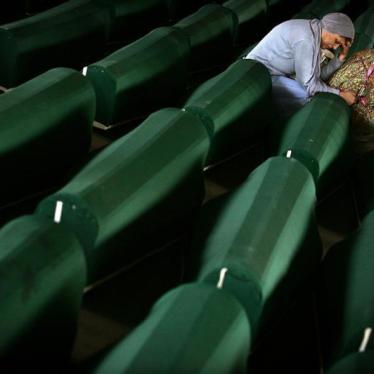Media outlets around the world seized on the dramatic suicide of convicted Bosnian Croat war criminal Slobodan Praljak, who drank poison in court and died on November 29.
But focus should remain on the horrible crimes – the atrocities – for which Praljak and his five co-defendants were convicted.
Let’s remember that judges of the Yugoslav war crimes tribunal in The Hague found the 72-year-old guilty of war crimes and crimes against humanity.
Let’s recall his sentence of 20 years for participating in a joint criminal enterprise to ethnically cleanse Bosnia and Herzegovina of its Muslim population.
Let’s recount the specific crimes he committed as commander of Croatian forces fighting in Bosnia:
“Murder, wilful killing, persecutions on political, racial and religious grounds, deportation, unlawful transfer of civilians, imprisonment, unlawful confinement of civilians, unlawful labour, inhumane acts, inhuman treatment, extensive destruction of property not justified by military necessity and carried out unlawfully and wantonly, destruction or wilful damage done to institutions dedicated to religion or education, unlawful attack on civilians, and unlawful infliction of terror on civilians.”
And let’s reflect on the victims of these barbaric acts rather than the closing drama of this war criminal’s life.
Perhaps the courtroom suicide can stand as metaphor for the wars that ripped Yugoslavia apart: those who commit atrocities in the name of defending their own communities ultimately ended up destroying themselves.










